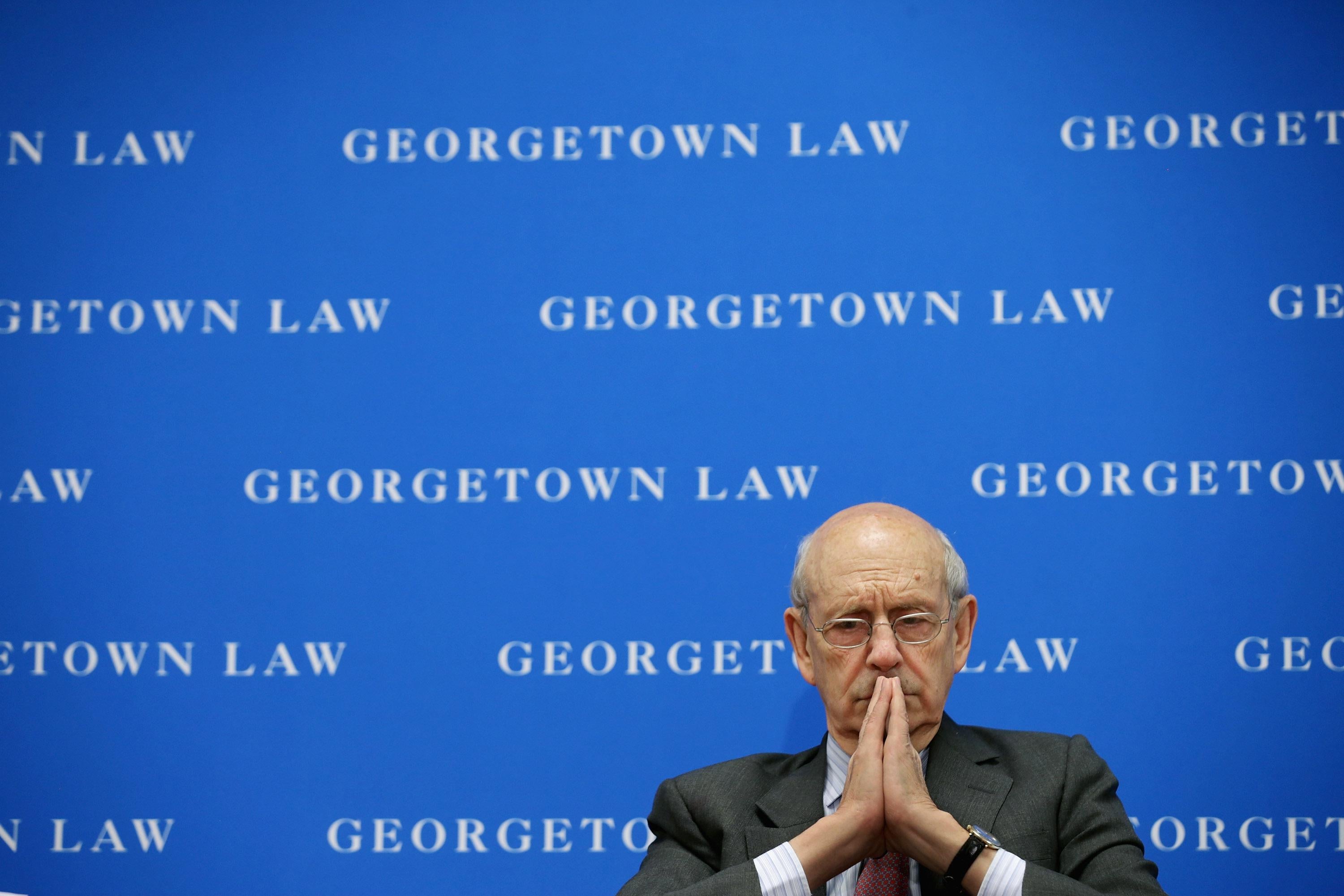The Supreme Court tinkered with the machinery of death once again Tuesday, clarifying capital defendants’ constitutional rights and reversing a death sentence out of Arizona. In a brief, unsigned opinion, the court reiterated that “where a capital defendant’s future dangerousness is at issue, and the only sentencing alternative to death available to the jury is life imprisonment without possibility of parole,” the due process clause “entitles the defendant ‘to inform the jury of [his] parole ineligibility.’ ” In other words, if jurors must choose between execution and life imprisonment, the defendant has the right to inform them when his life sentence would include no chance of parole. That way, jurors will understand that both options—death or life—would equally prevent the defendant from committing future crimes.
This constitutional right was firmly established more than two decades ago, and the court has repeatedly reaffirmed the principle since then. But in Tuesday’s case, Lynch v. Arizona, state prosecutors thought they’d found a way around it. Arizona law clearly deprives the defendant, Shawn Patrick Lynch, of the possibility of parole—and, throughout Lynch’s trial, prosecutors argued that he poses a serious risk of future dangerousness. That should have granted Lynch the right to tell the jury that a life sentence would not give him the opportunity to leave prison early on parole. Prosecutors disagreed, however, and persuaded the trial court to gag Lynch. The court found that because Lynch might one day receive executive clemency—a pardon by the governor—he had the functional equivalent of the possibility of parole and could not tell the jury otherwise. Lynch was sentenced to death. On appeal, the Arizona Supreme Court upheld the sentence.
A majority of the U.S. Supreme Court reversed that determination Tuesday, finding that the trial court did, indeed, infringe on Lynch’s due process rights. The court noted that it had, in a previous opinion, already rejected the idea that the mere possibility of future clemency nullified a defendant’s right to inform the jury of his parole ineligibility. Pardons are much rarer than parole, after all, and the odds of receiving a pardon are much too slim to rescind such an important right. Moreover, the justices rejected the Arizona Supreme Court’s holding that Lynch might yet receive parole in the future because the legislature could one day liberalize parole laws. Again, previous opinions already declared that “the potential for future ‘legislative reform’ could not justify refusing a parole-ineligibility instruction. If it were otherwise, a State could always argue that its legislature might pass a law rendering the defendant parole eligible.” Which is to say, by dangling the possibility of future reform, states could work around the due process clause at every capital trial.
Naturally, Justice Clarence Thomas dissented, joined only by Justice Samuel Alito. As is his wont, Thomas recounted Lynch’s crimes in superfluously graphic detail. (Both Thomas and Alito’s opinions read increasingly like a film treatment for Hostel Part II rather than careful judicial reasoning.) Thomas then noted that he had dissented from the earlier rulings establishing this due process right in the first place. (By joining Thomas’ opinion, Alito implies that he, too, would overrule this whole line of cases.) Finally, Thomas chastised the court for imposing an overly strict “magic-words requirement” and for its “micromanage[ment of] state sentencing proceedings.” Then again, Thomas believes there is no constitutional bar against states executing minors and the mentally disabled—or against prosecutors singling out then striking every black person from a capital jury in order to secure a death sentence for a black defendant. So it is no surprise that his views in Lynch are also wildly out of step with the court’s modern jurisprudence.
Tuesday’s decisions brought a second, smaller piece of decent news for capital punishment reformers. Although the court declined to hear yet another challenge to the death penalty’s constitutionality, Justice Stephen Breyer, joined by Justice Ruth Bader Ginsburg, seized the opportunity to reiterate his views on the Eighth Amendment. This case, Tucker v. Louisiana, involved a defendant who was sentenced to death in Caddo Parish—which, Breyer noted, “imposes almost half the death sentences in Louisiana, even though it accounts for only 5% of that State’s population and 5% of its homicides.” (In large part, that’s because the parish’s former acting district attorney adored the death penalty and proclaimed that his state should “kill more people.”) Breyer continued:
Given these facts, Tucker may well have received the death penalty not because of the comparative egregiousness of his crime, but because of an arbitrary feature of his case, namely, geography. One could reasonably believe that if Tucker had committed the same crime but been tried and sentenced just across the Red River in, say, Bossier Parish, he would not now be on death row.
Here, Breyer is reiterating his belief that the arbitrary and random nature of capital punishment in America today likely violates the Eighth Amendment’s prohibition against “cruel and unusual punishments.” On Tuesday, only Ginsburg joined him. But everyone seems to agree that Justices Elena Kagan and Sonia Sotomayor would, given the opportunity, also vote to strike down the death penalty. That leaves the liberals one justice short. And until they find a fifth vote, they’ll have to make do with sanding down the rougher edges of America’s machinery of death.
